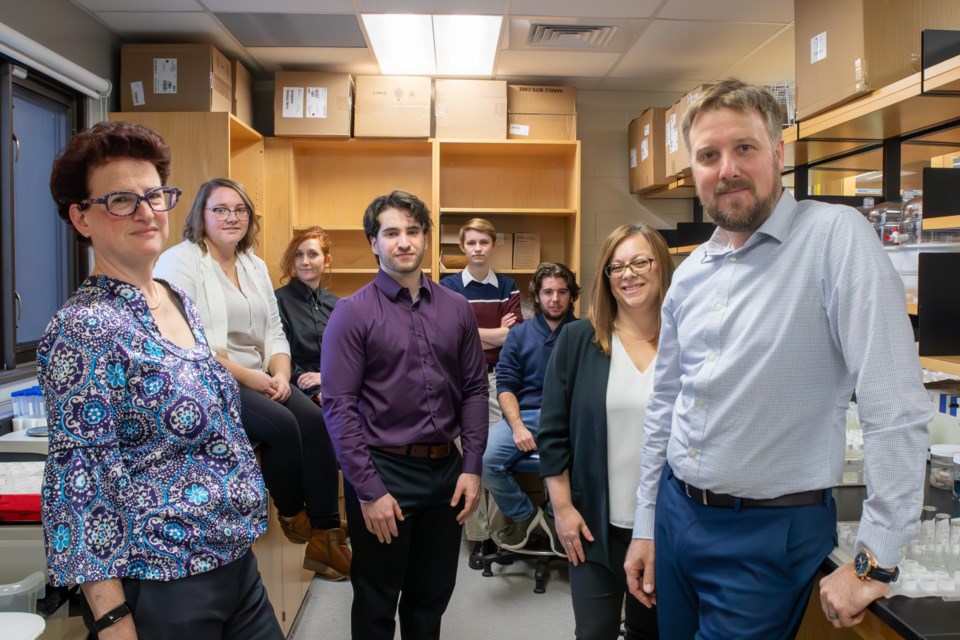A Nipissing University assistant professor, Dr. Colin McCarter, has been awarded an Alliance Missions Grant from the Natural Sciences and Engineering Research Council of Canada (NSERC) valued at $1,466,449.
McCarter is also the Canada Research Chair (CRC) in Climate and Environmental Change The money will further his team’s work on climate change and ecosystem restoration research.
Partnering with the City of Greater Sudbury and Vale Base Metals, McCarter’s research will examine how metal and sulfur pollution from historical mining activities in northeastern Ontario has impacted carbon storage, greenhouse gas emissions, and soil and water quality in wetlands. A key goal is also to develop novel reclamation techniques to restore both the biodiversity and ecosystem services of severely polluted peatland wetlands.
“Peatlands are the most common wetland in northern Ontario and play an important role in both water quality and carbon sequestration,” said McCarter in a news release. “The information gathered will be important to understand how this affects climate change in northern Ontario and help us to understand how to protect our environment and community. Our hope is that this research will offer northern solutions to northern problems.”
Sudbury is one of the world’s largest metal mining centres and historically was among the largest global point sources of sulphur dioxide and metal pollution.
Ecosystem reclamation is a prominent goal of that city's Regreening Program, and both Vale and the City have a goal of net zero carbon emissions by 2050. "The knowledge generated by this research will be important to achieving net zero in part through the restoration of the natural carbon sequestration function of peatlands within regions of northeastern Ontario, and broadly in Canadian and global mining-impacted landscapes," says the release.
McCarter says the research will determine if the peatlands are sequestering or emitting carbon to the atmosphere and will answer the question: “Can they be restored?”
NSERC Alliance Missions grants are awarded to university researchers collaborating with private-sector, public-sector or not-for-profit organizations. ,



